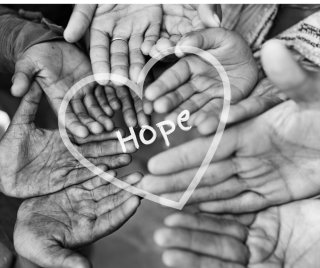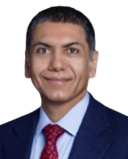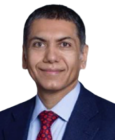Trauma
Rediscovering Hope Amidst Chaos
How collective action can give us purpose.
Posted January 26, 2023 Reviewed by Lybi Ma
Key points
- Hope gives us the power to endure the ills of the world, it is integral to resilience.
- People in a community can rely on one another with a sense of resilience.
- Feeding our negative emotions is not conducive to successfully processing trauma.

Accurately quantifying the effects of the COVID-19 pandemic defies just counting the dead and hospitalized to put the tragedy in perspective. These astronomical numbers fail to capture the impact of individual lives lost and families deprived of loved ones and exceed the limits of human imagination.
Similarly, the countless number of downstream effects unleashed by the pandemic—from disruptions to childhood development to economic hardships to the millions of cases of long COVID—rivals the number of evils that escaped Pandora’s box. Every few days seem to bring the emergence of a new crisis and an overwhelming feeling of mournful gloom.
As we each strive to reorient ourselves amid the tumult, it is worth remembering that in the myth of Pandora, one thing remains in her possession: Hope. If we are to take anything away from this story, it is that hope gives us the power to endure the ills of the world. It centers us. It makes us strong. It is the inner beacon that guides us. For some people, this hope is closely aligned with faith. For others, it lacks religious character and is related instead to their connection to a community or their love for family.
Throughout my 30 years as a clinical psychiatrist based at an inner-city hospital in New York City, I came to appreciate the durability of hope in the face of tragedy and its ability to lift up patients and their loved ones. Particularly during the most difficult moments, whether following 9/11 or during the spring of 2020, hope gives people something to hold onto. It is integral to resilience.
This is a lesson that I may have learned as a clinician, but it was reinforced when I traveled to the remote villages of Northern Pakistan and Kashmir following the 2005 earthquake.
The damage there was virtually beyond comprehension. Believed to be the deadliest earthquake to have ever occurred in the area, it caused an estimated quarter million casualties and left approximately 3.5 million homeless. Entire towns were destroyed. I met dozens of people who lost limbs and homes, as well as parents, siblings, spouses, and children. Despite these almost unfathomable tragedies, many of these people remained optimistic. I saw a clear correlation between this sense of optimism and resiliency in stressful situations. They were less likely to develop severe symptoms of PTSD or fall into despair. For some, their strong social bonds provided emotional shelter while for others it was a sense of purpose. For others still, it was an unshakable religious faith in the goodness of God and the notion that each moment of existence, including the disasters that seem so horrific and confounding from a human perspective, necessarily serves a larger purpose (“A mighty maze but not without a plan,” in the words of Alexander Pope).
One particularly strong example occurred in a small village near the earthquake’s epicenter. The lone school in the area had collapsed, trapping several dozen children beneath rubble. No equipment capable of freeing them was available. For several days, the sounds of kids pleading for help tortured their families. Slowly, those voices faded leaving only a harrowing silence. For weeks, the entire community was in a daze. People barely went outside. Eventually, the mayor decided to have a small birthday party for his daughter in the town square with some treats and modest decorations. To his surprise, the people from the town began to trickle into the square. They began to talk about what happened. The mayor, a licensed social worker, saw this sense of community and dialogue was helping the people process what had happened, so, they continued to meet in the square every night for months. Over time, the people within the village came to rely on one another and to feel a sense of resiliency. They gave each other hope and the strength to continue.
Conversely, people with whom I spoke from other areas not only lost loved ones and possessions but that glimmer of hope, too. They felt rudderless, forlorn, and alone. Many were inconsolable and resentful. Some admitted to having abandoned their faith, while others retained it but felt as though God was punishing them, leading to crushing manifestations of guilt.
I found that these pessimistic worldviews were associated with higher rates of depressive symptoms. The group that most acutely felt Godly punishment was the most likely to develop severe PTSD symptoms. The trauma they endured consumed them and distorted the lens through which they saw the world, a world in which they were adrift and without hope for better days ahead.
Given the events of the past three years, many people can surely relate. People throughout the world are still struggling to process the full impact of the pandemic. Economic challenges are fueling an impending sense of doom. The depths of despair are ravaging communities in the U.S. where people feel increasingly left behind. Meanwhile, social media and traditional media feed a steady stream of content designed to keep us engaged through a combination of fear, rage, and indignation.
As understandable as these feelings are, and as pollyannish as it seems to speak of hope, feeding our negative emotions is not conducive to successfully processing trauma. Instead, it leads to internalization. Worse, it fuels a sense of victimhood and rancor, ensuring that past traumas remain unresolved and perpetuated in new and oftentimes more monstrous forms.
If we are to develop resiliency to stress and thrive in the wake of tragedy, we cannot let these negative feelings color our outlook. We must recommit ourselves to our communities, rediscover a sense of collective purpose, and once again lift hope to a prominent position in our lives and allow it to be our guide.




